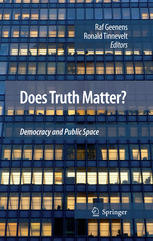

Most ebook files are in PDF format, so you can easily read them using various software such as Foxit Reader or directly on the Google Chrome browser.
Some ebook files are released by publishers in other formats such as .awz, .mobi, .epub, .fb2, etc. You may need to install specific software to read these formats on mobile/PC, such as Calibre.
Please read the tutorial at this link: https://ebookbell.com/faq
We offer FREE conversion to the popular formats you request; however, this may take some time. Therefore, right after payment, please email us, and we will try to provide the service as quickly as possible.
For some exceptional file formats or broken links (if any), please refrain from opening any disputes. Instead, email us first, and we will try to assist within a maximum of 6 hours.
EbookBell Team

0.0
0 reviewsOn the political level many seem to agree that democracy doesn’t need foundations, nor are its citizens expected to discuss the worth or truth of their comprehensive conceptions of the good life. And yet we still call upon ‘truth’ when we participate in defining the basic structure of our society and argue why our opinions, beliefs and preferences need to be taken seriously. We do not think that our views need to be taken into account by others because they are our views, but because we think they are true. If in a democratic society citizens have to deal with the challenge of affirming their claims as true, the precise relationship between truth and democracy needs to be analyzed. Does truth matter to democracy and if so, what is the place of truth in democratic politics? How can citizens affirm the truth of their claims and accept - at the same time - that their truth is just one amongst many? In Does Truth Matter? leading academics in the fields of philosophy, sociology and political science focus on the role the public sphere plays in answering these pressing questions. They try to give a comprehensive answer to these questions from the perspective of the main approaches of contemporary democratic theory: deliberative democracy, political pragmatism and liberalism.